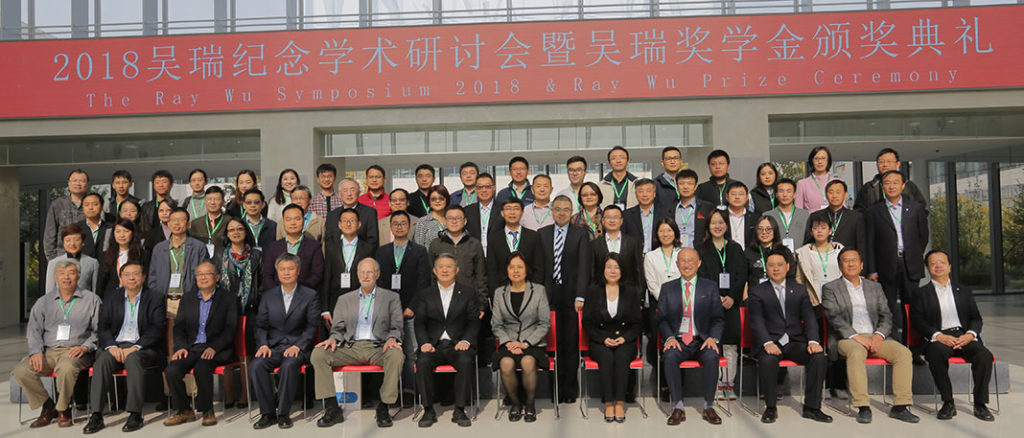THE RAY WU PRIZE
2018 Ray Wu Prize Winner
2018 Awardees at Ceremony
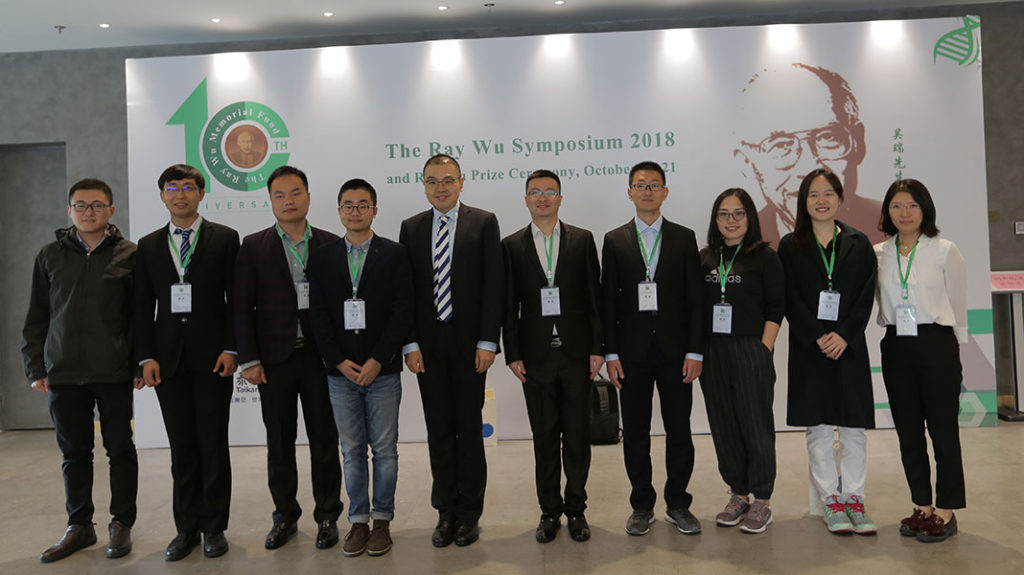
Tingting Zhou
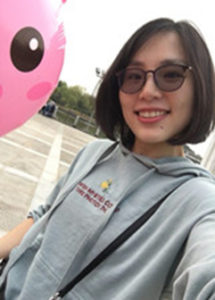 Background: Ms. Zhou received her Bachelor from Shandong University in 2011, and entered the Ph.D program in the laboratory of Dr. Hu Hailan in the Institute of Neuoscience, CAS in 2013. Tingting’s main work focused on the neural mechanism underlying social dominance hierarchy.1) Tingting and her collaborator found that optogenetic and chemo-genetic manipulation of subsets neurons in the dmPFC could instantly induce winning or losing in tube test, a behavioral paradigm to ensure social hierarchy. Moreover, she finally obtained the data to show that dmPFC neurons are activated by effortful behaviors during tube test. 2) by performing in vivo-optical local field potential (LFP) recording, she found that repeated winning strengthened synaptic connections between the MDT, a thalamic nucleus, and the dmPFC. Furthermore, by induction of long term depression (LTD) or long term potentiation (LTP) in this MDT-dmPFC pathway, she could abolish or mimic the effects of winning to bi-directionally change the rank order of an animal in a social hierarchy.
Background: Ms. Zhou received her Bachelor from Shandong University in 2011, and entered the Ph.D program in the laboratory of Dr. Hu Hailan in the Institute of Neuoscience, CAS in 2013. Tingting’s main work focused on the neural mechanism underlying social dominance hierarchy.1) Tingting and her collaborator found that optogenetic and chemo-genetic manipulation of subsets neurons in the dmPFC could instantly induce winning or losing in tube test, a behavioral paradigm to ensure social hierarchy. Moreover, she finally obtained the data to show that dmPFC neurons are activated by effortful behaviors during tube test. 2) by performing in vivo-optical local field potential (LFP) recording, she found that repeated winning strengthened synaptic connections between the MDT, a thalamic nucleus, and the dmPFC. Furthermore, by induction of long term depression (LTD) or long term potentiation (LTP) in this MDT-dmPFC pathway, she could abolish or mimic the effects of winning to bi-directionally change the rank order of an animal in a social hierarchy.
Citation: Ms. Zhou presented her research project clearly and showed her in-depth knowledge of the topic. In her experimental desing, she was careful about controls and possible variations and showed her independence. She explained the significance of her study very well.Her communication is quite effective and makes concrete conclusions about her work. Her knowledge about the field is quite good.
This prize is sponsored by Dongrun Foundation and Taikang Health Industry Investment Holdings Co., Ltd.
Xing Cao
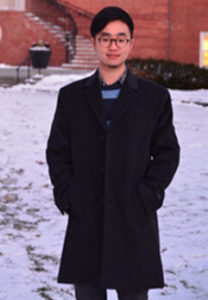 Background: Mr. Cao earned his bachelor degree from Beijing Normal University in 2014, and is conducting his PhD research in the laboratory of Dr. Wang Li in Institute of Psychology, CAS. His research focuses on Post-traumatic stress disorder (PTSD). He found 1) Different symptoms of PTSD have different molecular genetic basis. 2) PTSD and depression are not a single, general post-traumatic stress response, and they are two independent psychopathological constructs.3) He revealed how the manifestations of PTSD symptoms change in youth exposed to disasters.
Background: Mr. Cao earned his bachelor degree from Beijing Normal University in 2014, and is conducting his PhD research in the laboratory of Dr. Wang Li in Institute of Psychology, CAS. His research focuses on Post-traumatic stress disorder (PTSD). He found 1) Different symptoms of PTSD have different molecular genetic basis. 2) PTSD and depression are not a single, general post-traumatic stress response, and they are two independent psychopathological constructs.3) He revealed how the manifestations of PTSD symptoms change in youth exposed to disasters.
Citation: Mr. Cao is the first one in this lab to introduce network analyses of psycologic problems. This approach could identify the cross-effects of different factors. He has broad and in-depth knowledge of the field, and is interested not only in psycology studies, but also the underlying molecular or chemical mechanisms. He understands what kind of problems could be addressed by his approaches, but knows the limit of these methods. He has good ideas about potential interventions to improve patients’ conditions. He appears smart and confident. HIs answers are straight-forward and logical. He has forward thinkning to expand the research in more depth, including brain imaging.
This prize is sponsored by Dongrun Foundation and Taikang Health Industry Investment Holdings Co., Ltd.
Yunfang Zhang
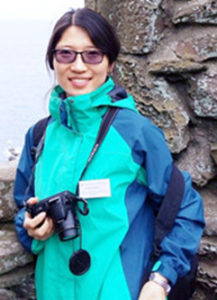 Background: Ms. Zhang earned her bachelor degree from Yanbian University o in 2011, and is conducting her PhD research in the laboratory of Dr. Duan Enkui at Institute of Zoology, CAS. Yunfang Zheng studies focus on tRNA-derived small RNA-tsRNAs. She and her colleague found that 1) tsRNAs in serum are quite stable this could due in part, to the RNA modifications on tsRNAs. 2) Dnmt2-mediated m5C on tRNA regulate the biogenesis of tsRNAs, and is essential for shaping sperm RNAs’ role in transferring paternal phenotype in the offspring.
Background: Ms. Zhang earned her bachelor degree from Yanbian University o in 2011, and is conducting her PhD research in the laboratory of Dr. Duan Enkui at Institute of Zoology, CAS. Yunfang Zheng studies focus on tRNA-derived small RNA-tsRNAs. She and her colleague found that 1) tsRNAs in serum are quite stable this could due in part, to the RNA modifications on tsRNAs. 2) Dnmt2-mediated m5C on tRNA regulate the biogenesis of tsRNAs, and is essential for shaping sperm RNAs’ role in transferring paternal phenotype in the offspring.
Citation: Ms. Zhang discovered a novel mechanism of inheritance via tsRNAs. She clearly explained the significance of this study in this field and other related areas. Her knowledge of tsRNA functions and involvement in broad areas is exceptional. She is very confident, passtionate about her work. Her answers are both complete and in-depth. She is very sure about her carrer path in the future. She has already been offered a faculty position.
This prize is sponsored by Dongrun Foundation and Taikang Health Industry Investment Holdings Co., Ltd.
Su Bin Lim
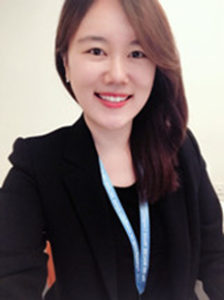 Background: Ms. Lim combines principles and skills of bioinformatics, microfluidics and cancer genomics to establish an integrative workflow for single-cell genomic characterization of patient-derived circulating cancer cells. This highly interdisciplinary project reflects well on her broad range of knowledge and diverse array of experimental skills. Her ability to analyse very large datasets to extract meaningful information is particularly impressive.
Background: Ms. Lim combines principles and skills of bioinformatics, microfluidics and cancer genomics to establish an integrative workflow for single-cell genomic characterization of patient-derived circulating cancer cells. This highly interdisciplinary project reflects well on her broad range of knowledge and diverse array of experimental skills. Her ability to analyse very large datasets to extract meaningful information is particularly impressive.
Citation: The student is exceptionally independent. Her Ph.D. project originated from her own hypothesis, and she drove the development of the project almost all by herself including planning her research, designing and conducting experiments, writing programmes for data analysis, finding collaboration, and writing manuscripts. Her clear presentation of her work and quick response to questions demonstrated her thorough understanding of the topic and the many ideas she has on how to solve problems and move forward. She was quite articulate and spoke with high clarity and confidence during her presentation. She showed strong self-motivation and clear ideas about what she wants to do in future. She aspires to commit to cancer research and to develop new technologies for better monitoring, management, and treatment of cancer. She desires to develop her scientific career in Asia.
This prize is sponsored by Dongrun Foundation and Taikang Health Industry Investment Holdings Co., Ltd.
Jiao Li
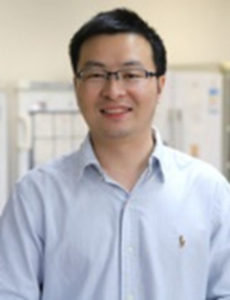 Background: Mr. Li received his BS from Beihang University in 2010, and entered the PhD program in National Institute of Biological Science, Beijing where he studies under Dr. Tang Nan in 2014. His most important breakthrough came from his observation that bi-potent progenitor cells are able to protrude from the airway epithelium toward the mesenchyme in response to FGF10, which functions as a local chemo attractant factor. The cell protrusion process is required for AT2 cell differentiation; it protects the protruded cells from mechanical forces present in the embryonic lung. Moreover, he discovered that an essential function of the mechanical forces generated by inhaled amniotic fluid is to induce AT1 cell differentiation.
Background: Mr. Li received his BS from Beihang University in 2010, and entered the PhD program in National Institute of Biological Science, Beijing where he studies under Dr. Tang Nan in 2014. His most important breakthrough came from his observation that bi-potent progenitor cells are able to protrude from the airway epithelium toward the mesenchyme in response to FGF10, which functions as a local chemo attractant factor. The cell protrusion process is required for AT2 cell differentiation; it protects the protruded cells from mechanical forces present in the embryonic lung. Moreover, he discovered that an essential function of the mechanical forces generated by inhaled amniotic fluid is to induce AT1 cell differentiation.
Citation: Mr. Li developed an elegant system to image lungs of live mice. He used the system to observe the lung development and could relate the observations to other experimental results to show the molecular mechanism. He knows the in-and-out of lung development and the mechanims of many lung diseases. He is both interested in developing new technology and in-depth studies of biological mechanisms. He is already thinking about applying this powerful approach to study other organs. He has quick thinking, and answers questions very professionally.
This prize is sponsored by Dongrun Foundation and Taikang Health Industry Investment Holdings Co., Ltd.
Yang Liu
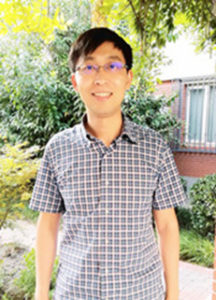 Background: Mr. Liu receivedd his bachelor degree from Fudan University in 2006, and is conducting his Ph.D. research in the laboratory of Dr. Cheng Gong in Tsinghua University. His PhD project is mainly focused on the mosquito-borne flavivirus, such as dengue virus (DENV) and the recently outbreak zika virus (ZIKV).1) Yang firstly identified a protien family named C-type lectin (mosGCTLs) in Aedes mosquitoes, which can enhance dengue virus infection in mosquitoes. 2) He demonstrated that the flaviviral encoded non-structural protein 1 (NS1), can be abundantly secreted into mammalian circulation system, and the ingested NS1 protein by mosquitoes can inhibit the immune system in mosquito midgut and facilitate dengue infection. 3) He identified an evolutionary mutation site at the zika NS1 protein, which enhances the secretability of NS1 protein in infected mammalian host, and contributes to the ZIKV prevalence in mosquitoes.
Background: Mr. Liu receivedd his bachelor degree from Fudan University in 2006, and is conducting his Ph.D. research in the laboratory of Dr. Cheng Gong in Tsinghua University. His PhD project is mainly focused on the mosquito-borne flavivirus, such as dengue virus (DENV) and the recently outbreak zika virus (ZIKV).1) Yang firstly identified a protien family named C-type lectin (mosGCTLs) in Aedes mosquitoes, which can enhance dengue virus infection in mosquitoes. 2) He demonstrated that the flaviviral encoded non-structural protein 1 (NS1), can be abundantly secreted into mammalian circulation system, and the ingested NS1 protein by mosquitoes can inhibit the immune system in mosquito midgut and facilitate dengue infection. 3) He identified an evolutionary mutation site at the zika NS1 protein, which enhances the secretability of NS1 protein in infected mammalian host, and contributes to the ZIKV prevalence in mosquitoes.
Citation: Mr. Liu studies the mechanism of flavivirus transmission by insector vectors, i.e. mosquitos. They discovered the novel constribution of a viral protein in effectiveness of insect transmission. He is very knowledgeable in this unique area. His presentation and experimental design are systematic, one step following another step. He shows great confidence and outsyanding communication skills. He has future plans to expand into studies of other viruses.
This prize is sponsored by Dongrun Foundation and Taikang Health Industry Investment Holdings Co., Ltd.
Yufei Xia
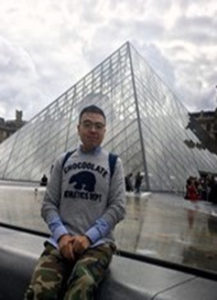 Background: Mr. Xia earned his bachelor degree from Central South University in 2012, and is conducting his PhD research in the laboratory of Dr. Ma Guanghui in Institute of Process Engineering, CAS. His research mainly focused on the Biomaterials for enhanced vaccination. 1) He re-tailored Pickering emulsion (nanoparticle stabilized emulsion) into an elastic and biodegradable adjuvant. Compared with the clinical relevant adjuvants (Alum, MF59, and AS04), Pickering emulsion droplets were demonstrated with the enhanced immune protections against influenza virus challenge and higher efficiency in both E.G7/OVA and B16/MUC1 anti-tumor immune therapies. 2) He developed “immunoticket” capsules, which were designed with positive charged shells and oily core to spatiotemporally deliver antigens and all- trans retinoic acid (RA). After intramuscular vaccinations, these capsules functioned as immunoticket to cultivate the peripheral DCs with gut-homing receptors (CCR9). Taking advantage of the concentration gradient of chemokine CCL25, the primed DCs would home to the gut associated lymphoid tissues (GALTs) and induced antigen-specific IgA secretion and T cell engagement.
Background: Mr. Xia earned his bachelor degree from Central South University in 2012, and is conducting his PhD research in the laboratory of Dr. Ma Guanghui in Institute of Process Engineering, CAS. His research mainly focused on the Biomaterials for enhanced vaccination. 1) He re-tailored Pickering emulsion (nanoparticle stabilized emulsion) into an elastic and biodegradable adjuvant. Compared with the clinical relevant adjuvants (Alum, MF59, and AS04), Pickering emulsion droplets were demonstrated with the enhanced immune protections against influenza virus challenge and higher efficiency in both E.G7/OVA and B16/MUC1 anti-tumor immune therapies. 2) He developed “immunoticket” capsules, which were designed with positive charged shells and oily core to spatiotemporally deliver antigens and all- trans retinoic acid (RA). After intramuscular vaccinations, these capsules functioned as immunoticket to cultivate the peripheral DCs with gut-homing receptors (CCR9). Taking advantage of the concentration gradient of chemokine CCL25, the primed DCs would home to the gut associated lymphoid tissues (GALTs) and induced antigen-specific IgA secretion and T cell engagement.
Citation: Mr. Xia is very enthusiastic about his work. He is a self-driven researcher and almost independently achieved the current outcome. He is extremely competent in his technology and knows his field (which is very competitive) very well. He will need to find a practical medical application for his technology. He speaks clearly with confidence. He already has a faculty position.
This prize is sponsored by Dongrun Foundation and Taikang Health Industry Investment Holdings Co., Ltd.
Tong Liang
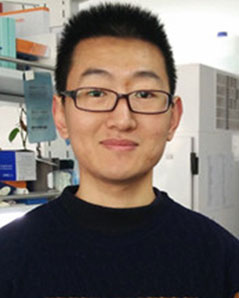 Background: Mr. Liang received his bachelor degree from Nanjing Agriculture University in 2012. He entered the PhD program in Institute of plant physiology and ecology, CAS in the same year. His PhD thesis research is focusing on UV-B signaling. Tong figured out a new UV-B signaling pathway, and his results establish that UVR8-BES1/BIM1 interaction represents an early photoreceptor signaling mechanism in plants and serves as an important module integrating light and BR signaling.
Background: Mr. Liang received his bachelor degree from Nanjing Agriculture University in 2012. He entered the PhD program in Institute of plant physiology and ecology, CAS in the same year. His PhD thesis research is focusing on UV-B signaling. Tong figured out a new UV-B signaling pathway, and his results establish that UVR8-BES1/BIM1 interaction represents an early photoreceptor signaling mechanism in plants and serves as an important module integrating light and BR signaling.
Citation: Mr. Liang discovered a new signaling pathway of the plant UV-B photoreceptor UVR8 and delineated how UVR8 mediates inhibition of plant growth by interfering with plant hormone signaling. During the interview, he could discuss his own specific project about different biological functions, and at the same, could relate to the basic science. His understanding of the topic has depth. He is quite knowledgeable about effects of different types of radiation, including IR and UVA/B, on plant growth, as well as plant development. His communication skills are excellent, and demonstrated his interlecutal capability.
This prize is sponsored by Dongrun Foundation and Taikang Health Industry Investment Holdings Co., Ltd.
Shuai Zong
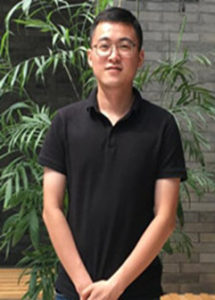 Background: Mr. Zong received his bachelor degree from Shanghai University of Technology in 2011, and entered the Ph.D. program in Tsinghua University in 2013. His advisor is Dr. Yang Maojun. Mr. Zong’s research interest is in the area of mitochondrial respiratory chain research. His recent work has revealed the high-level organization of human respiratory chain protein complexes – two super-complexes (MCI2III2IV2, the three-dimensional structure of SCI1III2IV1). In this study, for the first time, samples of respiratory chain protein complexes derived from human cells were obtained, and the 3D structure of the respiratory chain super complex was successfully analyzed using the three-dimensional reconstruction method of the cryo-electron microscope.
Background: Mr. Zong received his bachelor degree from Shanghai University of Technology in 2011, and entered the Ph.D. program in Tsinghua University in 2013. His advisor is Dr. Yang Maojun. Mr. Zong’s research interest is in the area of mitochondrial respiratory chain research. His recent work has revealed the high-level organization of human respiratory chain protein complexes – two super-complexes (MCI2III2IV2, the three-dimensional structure of SCI1III2IV1). In this study, for the first time, samples of respiratory chain protein complexes derived from human cells were obtained, and the 3D structure of the respiratory chain super complex was successfully analyzed using the three-dimensional reconstruction method of the cryo-electron microscope.
Citation: Mr. Zong’s work is very impressive. Unlike others, he participated in the whole process of structural determination of this important complex, from purification of proteins from endogenous mitochondria to the image reconstruction. He fully understands the significance of this work and could discuss the details of structure-function relationship. He has broad knowledge of both structural methods and protein structure.
This prize is sponsored by Dongrun Foundation and Taikang Health Industry Investment Holdings Co., Ltd.
Dongwei Li
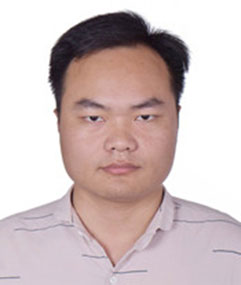 Background: Mr. Li earned his medical bachelor degree from Henan University in 2012, and is conducting his PhD research in the laboratory of Dr. Pei Duanqing at University of Chinese Academy of Science. His PhD topic is studying the regulation mechanism of chromatin in cell nucleus. He established the technology of ATAC-seq and analysis method for the open measurement of chromatin, and used this method to discover the chromatin “open-close” mechanism during somatic cell reprogramming.
Background: Mr. Li earned his medical bachelor degree from Henan University in 2012, and is conducting his PhD research in the laboratory of Dr. Pei Duanqing at University of Chinese Academy of Science. His PhD topic is studying the regulation mechanism of chromatin in cell nucleus. He established the technology of ATAC-seq and analysis method for the open measurement of chromatin, and used this method to discover the chromatin “open-close” mechanism during somatic cell reprogramming.
Citation: Mr. Li showed complete understanding of his research project in terms of significance, mechanism and experimental details. He independently established the current experimental system and self-taught the bioinformatics analyses. He is very knowledgeable about different approaches of study in this field, and is aware of his competitors. His answers are confident and logical. He is motivated to follow a clear career path in research.
This prize is sponsored by Dongrun Foundation and Taikang Health Industry Investment Holdings Co., Ltd.
RWMF members at the award ceremony for the 2018 Ray Wu Prize
